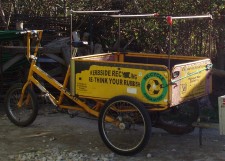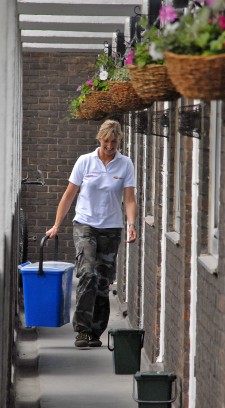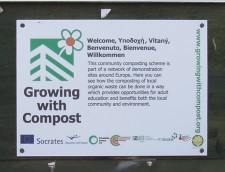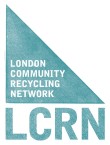The Context for Community Composting
 The UK currently produces over 28 million tonnes of municipal waste every year, and over half of this ends up in landfill. Over 60% of this waste stream is biodegradable.
The UK currently produces over 28 million tonnes of municipal waste every year, and over half of this ends up in landfill. Over 60% of this waste stream is biodegradable.
Biodegradable waste is mostly food waste, garden waste and paper, and this decays anaerobically (without oxygen) in landfill sites to produce methane, a potent greenhouse gas. Once in the atmosphere, methane absorbs terrestrial infrared radiation that would otherwise escape to space. Methane is about 21 times more powerful at warming the atmosphere than carbon dioxide (CO2) by weight.
 Alongside uncontrolled greenhouse gas production, there are other issues associated with landfill, including leaching (the leaking of potentially toxic liquids into soil and groundwater), litter, pests, and the waste of valuable, recyclable goods. In the USA and Japan organisations are now beginning to mine old landfill sites for precious resources!
Alongside uncontrolled greenhouse gas production, there are other issues associated with landfill, including leaching (the leaking of potentially toxic liquids into soil and groundwater), litter, pests, and the waste of valuable, recyclable goods. In the USA and Japan organisations are now beginning to mine old landfill sites for precious resources!
In the EU, the Landfill Directive sets specific targets for the reduction of biodegradable waste going to landfill. These targets are 75% of the 1995 level by 2010, 50% of the 1995 level by 2013, and 35% of the 1995 level by 2020. In practice this means that by 2020, the UK needs to divert 40% of household waste from landfill to meet the legal requirements of the Landfill Directive, as long as all of this is biodegradable waste.
Alongside these specific targets, the 'Animal By-Products Regulation' bans commercial food waste from going to landfill from the end of 2005.
At the UK level, the 2007 Waste Strategy is a framework for England for improving the management of waste in response to the EU Landfill Directive. (The devolved assemblies of Scotland, Wales and Northern Ireland have also developed strategies). To reduce landfill the Waste Strategy sets out the following recommendations for action:
- Greater efforts to reduce waste;
- Substantial increase in re-use, recycling and composting;
- Where waste cannot be recycled, recovery of energy from waste, through incineration.
 The 2007 Waste Strategy sets some specific targets, for example:
The 2007 Waste Strategy sets some specific targets, for example:
- Recycle or compost 40% of household waste by 2010, 45% by 2015 and 50% by 2020
- Reduce the amount of household waste not re-used, recycled or composted from 22.2 million tonnes in 2000 to 15.8 million tonnes in 2010, with an aspiration of 12.2 million tonnes in 2020
- Achieve net annual reduction in global greenhouse gas emissions from waste management by 9.3 million tonnes of CO2 compared to 2006 (equivalent to taking about 3 million cars off the road)
It is clear that in this climate of reducing landfill, Community Composting has an important role to play. This role is not only actually contributing to diverting organic waste from landfill, but perhaps more importantly, by engaging people at grass roots level in taking action to reduce waste.
This vital role of Community Compost organisations in promoting behaviour change and fostering community cohesion is sometimes overlooked by bald statements about tonnages or numbers of volunteers engaged in schemes.
Printed from: www.valuingcommunitycomposting.org.uk
This website was developed as one of the deliverables for the Defra funded Open University research project, WR0211: Unlocking the Potential of Community Composting. Information contained in it is correct at the time of publication. © The Open University, January 2009




Essential web links if you are running or thinking of running a Community Composting project:
The Growing with Compost ToolkitHome and Community Composting on the NRWF Household Waste Prevention Toolkit
Community Composting Network
Devon Community Composting Network
Community Recycling Network
London Community Recycling Network
Cylch
Community Recycling Network Scotland